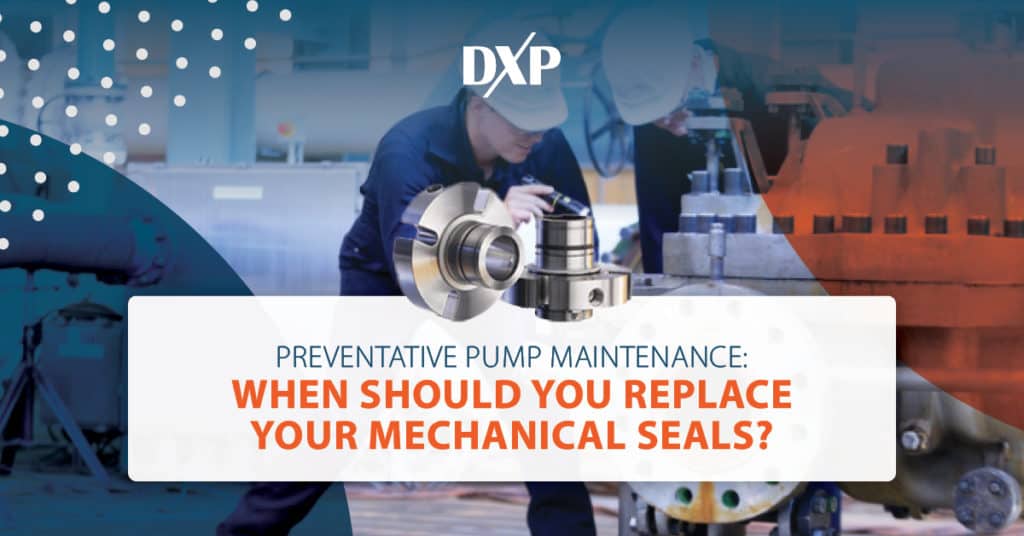Mechanical seals are a common failure point on pumps and other rotating equipment. They are prone to degradation, leading to fluid, gas, or air leaks. Eventually, a compromised mechanical seal will hinder pump performance and cause internal damage. For example, you may lose suction pressure, or the pump may lose its prime. Leaking seals can also be dangerous to the environment and your workers, especially when pumping hazardous chemicals or toxic fluids. Outside contaminants can also get into the system and cause trouble.
It is essential to take care of your mechanical seals with routine maintenance and repairs. When a seal is beyond fixing, it needs immediate replacing to avoid further problems.
Types of Mechanical Seals
There are several different types of mechanical seals you will find on pump equipment, including split- and single-cartridge designs, balanced or unbalanced, and pusher or non-pusher, to name a few. They can be constructed of different materials to withstand various pressures, temperatures, and fluid corrosiveness.
Purchasing the proper mechanical seal is vital. Many aftermarket options are available with specifically engineered design features, performance characteristics, and materials that may work best for your pump system and fluid processing application.
At DXP, we are product partners with the leading mechanical seal manufacturers, and our team can match you with the best sealing solutions for your particular pump system. Our product partners include John Crane, Flexaseal, Chesterton, Flowserve, and AES.
Mechanical Seal Inspection & Maintenance
As part of your pump maintenance program, you should regularly and carefully inspect and test mechanical seals. Ensure the seals are secure with no fluids, air, lubricants, or entrapped gases escaping. Any significant leaks near the seal will be a clear sign that the mechanical seal itself is compromised. It may simply need to be re-tightened or relubricated, or it may be due for a replacement. However, it can be tricky to physically inspect mechanical seals on some pumps without dismantling the equipment. Even so, it is crucial to at least check for any leakage around the seal.
Another way to monitor mechanical seal health is holistically monitoring your system performance. For example, you can track key performance indicators, like pressure loss or the inability to prime are common symptoms of a failing seal.
Mechanical Seal Replacement
Pump repair experts perform mechanical seal replacements best, as it requires precision and care to ensure the new seal fits well and is installed correctly. If not, it may not function optimally and will lead to other issues within the pump system. If your staff isn’t professionally trained, hire a pump repair specialist. At DXP, we can help you with your pump system needs, from mechanical selection to precision installation to ongoing maintenance and repair services. Please, contact us today if you need assistance with your mechanical seals or other pump parts and equipment.

